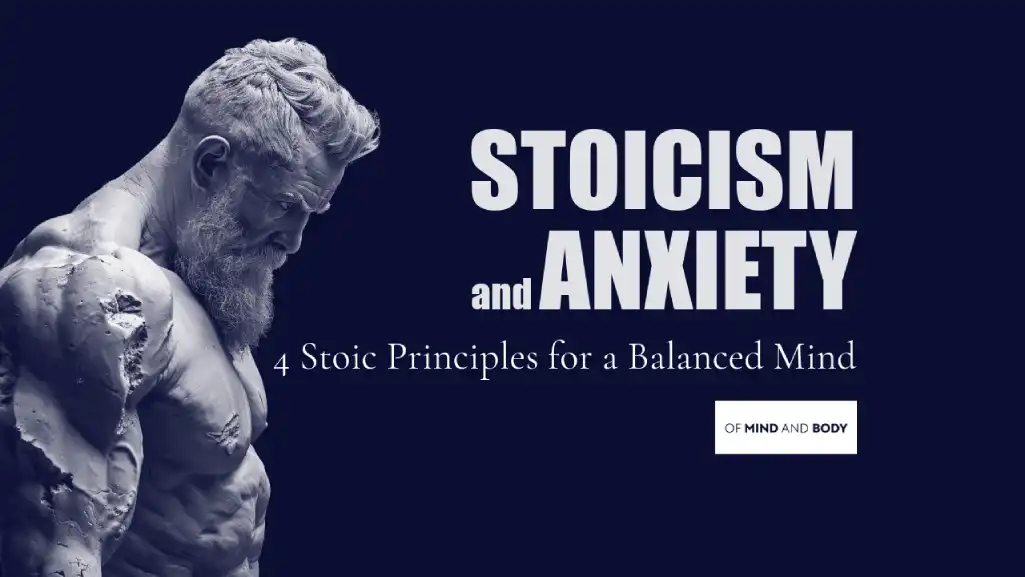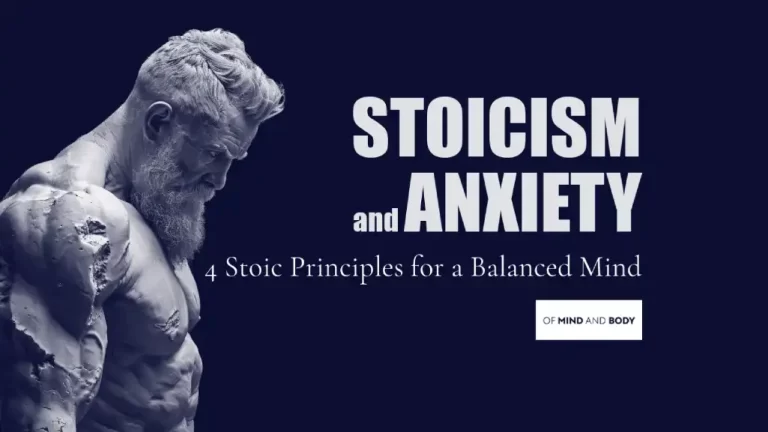
Table of Contents
Introduction
Imagine holding the reins of one of the world’s most powerful empires while grappling with the intricacies of Stoicism—this was the life of Lucius Annaeus Seneca, commonly known as Seneca. His unique ability to blend statesmanship with philosophical inquiry is central to the Philosophy of Seneca. As both a political figure and a thinker, Seneca’s life offers a compelling study of how the Philosophy of Seneca can be applied not only in personal life but also in the corridors of power.
Seneca’s works, especially Letters to Lucilius and his moral essays, serve as enduring examples of the Philosophy of Seneca, which emphasises virtue, reason, and self-discipline. These writings are practical, offering guidance on how to navigate life’s challenges—whether for an ordinary citizen or a trusted adviser to an emperor. By exploring the Philosophy of Seneca, we uncover how his philosophical insights shaped his political career and how his experiences in governance deepened his understanding of Stoicism.
The Philosophy of Seneca extends far beyond the theoretical; he was a Stoic statesman who actively applied his principles in the tumultuous world of Roman politics. His ability to maintain philosophical integrity while wielding power showcases the relevance of the Philosophy of Seneca today. Whether you’re seeking to lead with integrity or maintain personal virtue under external pressures, Seneca’s life and teachings offer valuable lessons grounded in Stoic wisdom.
Who Was Seneca?
The Early Life and Education of Seneca
Seneca was born in 1 BCE in Corduba, Spain, into a prominent Roman family. His father, Seneca the Elder, was a well-known rhetorician, ensuring that his son received a rigorous education in rhetoric and philosophy from an early age. Seneca’s intellectual upbringing was steeped in the teachings of Stoic philosophers like Attalus and Sotion, who profoundly influenced his philosophical outlook. These early years laid the foundation for the Philosophy of Seneca, and his lifelong commitment to Stoicism, an outlook that would later guide him through the complexities of political life in Rome.
Seneca’s Political Career
Seneca’s entrance into Roman politics was marked by ambition and intellect. He quickly rose through the ranks, securing a position in the Senate and gaining a reputation as a powerful orator. His political career, however, was not without turmoil. In 41 CE, under Emperor Caligula, Seneca narrowly escaped execution due to the emperor’s jealousy of his rhetorical skills. Later, under Emperor Claudius, Seneca faced exile to the island of Corsica on dubious charges of adultery with Julia Livilla, Claudius’s niece.
Despite these setbacks, Seneca’s political fortunes improved when Agrippina, the mother of the future Emperor Nero, recalled him to Rome in 49 CE. She entrusted him with the education of her son, Nero, who would eventually become emperor. As Nero’s advisor, Seneca initially wielded considerable influence, promoting policies that aligned with Stoic principles, such as clemency and justice. However, as Nero’s reign became increasingly erratic and despotic, Seneca’s position grew precarious. He found himself caught between his Stoic ideals and the brutal realities of Roman imperial politics.

Seneca’s Philosophical Contributions
Throughout his political career, Seneca remained deeply engaged with Stoic philosophy. His writings, which include essays, letters, and tragedies, reflect his attempt to reconcile his philosophical beliefs with his experiences in the Roman court. Works such as On the Shortness of Life and On Anger offer timeless reflections on human nature, ethics, and the importance of rational thought. Perhaps his most famous work, Letters to Lucilius, is a collection of moral epistles that provide practical guidance on living a virtuous life according to Stoic principles.
The Philosophy of Seneca is not limited to abstract theory; it is deeply practical, offering insights into how to live a life of virtue amidst the pressures of public and private life. His ability to articulate the core tenets of Stoicism—virtue, reason, and self-discipline—while actively participating in the political arena is what sets the Philosophy of Seneca apart, making him one of the most influential Stoic philosophers of his time.
Seneca as the Stoic Statesman
Stoicism in Governance
The Philosophy of Seneca offers a compelling perspective on his political career, blending Stoic principles with his role as a statesman. Stoicism, with its emphasis on virtue, reason, and self-control, provided the ethical framework that Seneca brought to his roles in Roman governance. Unlike many of his contemporaries who viewed power as a means to personal gain, Seneca saw his political responsibilities as an opportunity to enact Stoic virtues on a grand scale. He believed that true leadership required a steadfast commitment to justice, rational decision-making, and the welfare of the state over personal ambition.
This philosophical grounding was evident in his early influence on Nero. Seneca sought to temper the young emperor’s impulses, guiding him toward clemency and restraint, core tenets of Stoicthought. He advised Nero to rule with moderation, warning against the dangers of tyranny and excess. Unfortunately, as Nero grew more erratic, Seneca’s ability to influence him waned, revealing the limits of philosophical counsel in the face of absolute power. Despite this, the Philosophy of Seneca, as applied to leadership, remains a powerful example of how philosophical principles can guide political action.

The Influence on Nero
Seneca’s relationship with Nero is one of the most complex aspects of his career.Initially, the Philosophy of Seneca played a crucial role in shaping Nero’s early policies, which were marked by moderation and reform efforts. However, as Nero’s reign progressed, his descent into tyranny posed significant ethical challenges for Seneca. The philosopher found himself increasingly isolated, his Stoic counsel overshadowed by Nero’s growing paranoia and cruelty.
Seneca’s writings during this period reflect his inner conflict. While he continued to advocate for self-control and moral integrity, core tenets of the Philosophy of Seneca, he was painfully aware of the compromises he had made by remaining in Nero’s service. This tension is perhaps best captured in his essays, where he grapples with the moral dilemmas of being a philosopher in the court of a tyrant. Ultimately, Seneca’s life serves as a cautionary tale about the difficulties of maintaining philosophical integrity within the treacherous world of politics.
Ethics and Power
Seneca’s tenure in the Roman court offers profound insights into the relationship between ethics and power. He was acutely aware of the corrupting influence of power and wealth, themes that recur throughout the Philosophy of Seneca. In his essay On the Happy Life, Seneca discusses the dangers of becoming a slave to one’s wealth, emphasising that true freedom comes from mastering one’s desires rather than accumulating material goods. This perspective was not merely theoretical; it was a reflection of Seneca’s own experiences as a wealthy and powerful man who nonetheless sought to live according to Stoic principles.
“It is the power of the mind to be unconquerable, if it has drawn up itself to that state in which it desires nothing that is beyond its reach.”

Seneca’s thoughts on power and ethics are also evident in his correspondence with Lucilius, where he often reflects on the moral challenges of public life. He counsels Lucilius to remain steadfast in his virtues, regardless of the temptations of power. For the Philosophy of Seneca, the true measure of a person’s character was not how they behaved in times of ease but how they conducted themselves when faced with the corrupting influences of power. This focus on ethical integrity in the face of external pressures is a central theme in the Philosophy of Seneca and a key reason why his writings continue to resonate with those interested in Stoicism and leadership.
“It is a great thing to know the season for yielding; the fighting for what you wish to achieve should be tempered with respect for what is right.”
(Letters to Lucilius, Letter 118)

This quote captures Seneca’s emphasis on maintaining ethical integrity, especially in positions of power. He advises Lucilius to remain virtuous, acknowledging that while striving for success or influence is natural, it must always be balanced with a commitment to doing what is morally right. This reflection aligns with Seneca’s broader Stoic belief that true character is revealed in how one handles the temptations and challenges of power, making ethical conduct the true measure of leadership.
Seneca’s life and career thus exemplify the Stoic ideal of maintaining virtue in the face of adversity. His efforts to apply Stoic principles in his governance, despite the challenges and contradictions of his position, make him a compelling figure for those seeking to understand the intersection of philosophy and politics.
Key Stoic Principles in Seneca’s Writings
Virtue and Moral Integrity
At the core of the Philosophy of Seneca is the belief that virtue is the highest good and the foundation of a meaningful life. For Seneca, virtue was not just an abstract concept but a practical guide for daily living. He argued that moral integrity—living in alignment with one’s values and principles—was essential for achieving true happiness.
In his writings, Seneca often emphasised that external circumstances, whether wealth, status, or even health, are fleeting and beyond our control. What truly matters, and what remains within our control, is how we choose to act and respond in every situation. This focus on internal virtue over external success is a recurring theme in the Philosophy of Seneca, his essays and letters, particularly in his reflections on the transient nature of life and the importance of living in accordance with reason.
“A good character is the only guarantee of everlasting, carefree happiness.”
(On the Happy Life)

– For Seneca, true happiness comes from moral integrity and living in alignment with virtue, not from material wealth or external success.
“What progress, you ask, have I made? I have begun to be a friend to myself.”
(Letters to Lucilius, Letter 6)

– Moral integrity begins with self-awareness and self-discipline. For Seneca, living virtuously means being true to oneself and one’s principles.

Find out more about Seneca’s enduring quotes with the article 30 Seneca Quotes: Stoic Philosophy for Personal Growth
Fate and Acceptance
The Philosophy of Seneca also deeply engages with the Stoic concept of fate—accepting the natural course of events and understanding that some things are simply beyond our control. This idea is central to his teaching on maintaining tranquillity in the face of adversity. Seneca advised that by accepting the inevitable and focusing on what we can control—our thoughts, actions, and attitudes—we can achieve a state of inner peace, regardless of external circumstances.
This acceptance is not passive resignation but an active engagement with life, where one remains steadfast in virtue even when faced with hardship. In his essay On Providence Seneca eloquently argues that challenges and misfortunes are opportunities to practice virtue, viewing adversity as a test of character rather than a cause for despair.
“To bear trials with a calm mind robs misfortune of its strength and burden.”

– Here, Seneca argues that by maintaining composure and accepting the inevitable, we diminish the power of misfortune over our lives. Adversity is an opportunity to exercise virtue and maintain inner peace.
“No man is more unhappy than he who never faces adversity. The greatest blessings of mankind are within us and within our reach.”

– This quote emphasises that true strength and happiness are cultivated through facing challenges, and that our ability to remain virtuous in adversity is what leads to true contentment.
Wealth and Simplicity
The relationship with wealth and luxury is one of the more paradoxical aspects of the Philosophy of Seneca. Despite being one of the wealthiest men in Rome, Seneca consistently preached the virtues of simplicity and self-discipline. He believed that wealth should be viewed as a tool rather than an end in itself, and that true freedom comes from being indifferent to material possessions.
In On the Happy Life, Seneca discusses how a wise person uses wealth without being enslaved by it, maintaining control over desires and staying focused on living a virtuous life. The Philosophy of Seneca reflects a Stoic disdain for excess, advocating instead for a life of moderation and purpose, where material wealth is subordinate to moral wealth.
Seneca’s teachings on virtue, fate, and wealth offer a practical philosophy for navigating the complexities of life. His ability to articulate these principles in a way that is both accessible and profound has ensured that his writings remain influential for those seeking to live with integrity and purpose. Through his work, Seneca invites us to consider how we might apply Stoic principles to our own lives, not just in times of ease but especially when we face challenges that test our character.
“It is not the man who has too little, but the man who craves more, that is poor.”

– Seneca reiterates the Stoic teaching that true poverty comes from an insatiable desire for more, not from a lack of material wealth. Simplicity and contentment lead to true freedom.
“Wealth is the slave of the wise man and the master of the fool.”

– Seneca emphasises that wealth, in the hands of a wise person, is merely a tool to be used for virtuous purposes, whereas for the foolish, it becomes a controlling force.
Lessons from Seneca’s Letters to Lucilius
Practical Stoicism
Seneca’s Letters to Lucilius offer a treasure trove of practical wisdom, serving as both a philosophical guide and a reflection on the challenges of everyday life. These letters, addressed to his friend Lucilius, provide an intimate glimpse into how the Philosophy of Seneca applies Stoic principles to real-world situations. Each letter is filled with advice on how to live a virtuous life, focusing on the cultivation of inner strength and resilience.
Seneca emphasised that philosophy should not be confined to theoretical discussions but should instead be a practical tool for improving our lives. Through these letters, he encouraged Lucilius—and by extension, all readers—to engage in daily self-examination, to reflect on their actions and thoughts, and to strive for continuous improvement.
“As long as you live, keep learning how to live.”
(Letters to Lucilius, Letter 76)

– This quote captures Seneca’s advice on continuous self-improvement, encouraging daily self-reflection and the ongoing pursuit of wisdom.
Daily Practice
A recurring theme in Seneca’s letters is the importance of daily practice and reflection. He believed that virtue is not something that can be achieved overnight but is instead the result of consistent effort and discipline. Seneca advised Lucilius to end each day by reviewing his actions, asking himself whether he had lived according to his principles.
This practice of self-reflection, which Seneca himself followed, was seen as essential for maintaining a Stoic mindset. By regularly evaluating our thoughts and actions, we can identify areas for improvement and reinforce our commitment to living a virtuous life. This daily practice is a cornerstone of the Philosophy of Seneca highlighting the importance of mindfulness and intentional living in the pursuit of wisdom.
“We should every night call ourselves to an account: What infirmity have I mastered today? What passions opposed? What temptation resisted? What virtue acquired?”
(Letters to Lucilius, Letter 83)

– This quote captures Seneca’s practice of daily self-reflection, advising Lucilius to review his actions and strive for self-improvement and virtue at the end of each day.
Role Models and Mentors
Seneca also stressed the value of having role models and mentors to guide one’s ethical development. In one of his letters, he advised Lucilius to choose a person whose life and character he admired, someone who could serve as a moral benchmark. By constantly measuring oneself against this ideal, Seneca believed that one could stay aligned with Stoic virtues.
He often reflected on his own mentors, such as Attalus and Sotion, who had a profound influence on his philosophical outlook. Seneca’s advice on role models underscores the importance of learning from others and seeking out examples of virtuous living to inspire and guide our own journey.
These lessons from Letters to Lucilius demonstrate Seneca’s commitment to Stoicism as a practical philosophy. His focus on daily reflection, the importance of mentors, and the application of philosophical principles to everyday life provide a blueprint for anyone seeking to live with greater purpose and integrity. Through his letters, Seneca invites us to consider how we can incorporate Stoic practices into our own lives, making philosophy not just a subject of study but a way of living that promotes inner peace and moral excellence.
“We ought to select someone we respect and always keep them before our eyes, so that we may live as if they were watching us, and act as if they could see everything we do.”
(Letters to Lucilius, Letter 11)

– Seneca encourages Lucilius to envision a mentor observing his actions. This practice helps ensure that one lives with integrity and strives to maintain high ethical standards.
Seneca’s Legacy and Influence
Impact on Stoicism
Seneca’s contributions to Stoicism have left an indelible mark on the philosophy, ensuring its survival and continued relevance through the ages. His writings, particularly his essays and letters, are some of the most accessible and practical expositions of Stoic thought, making the philosophy approachable for both ancient and modern readers.
Unlike the more theoretical works of earlier Stoics, the Philosophy of Seneca focuses on applying Stoic principles to everyday life, providing readers with actionable advice on how to live virtuously and maintain inner peace in the face of adversity. His emphasis on the practical application of Stoicism, especially in the context of public life and personal ethics, has made his work a cornerstone of Stoic philosophy.
Seneca’s influence extends beyond his writings. His role as a statesman who attempted to govern according to Stoic ideals demonstrated that philosophy could be a guiding force in public life. His efforts to apply Stoicism in the Roman court, despite the challenges and contradictions of his position, serve as a powerful example of how philosophy can inform leadership and ethical decision-making.
Through his life and work, Seneca helped to shape the Stoic tradition, emphasising that Stoicism is not just a set of ideas but a way of life that can guide individuals in their personal and professional endeavours.

Influence on Literature
Seneca’s legacy is not confined to philosophy alone; his influence on literature, particularly during the Renaissance and beyond, is profound. His tragedies, such as Phaedra and Thyestes, explore themes of human nature, morality, and fate, reflecting his Stoic beliefs. These works, while less known than his philosophical writings, had a significant impact on the development of European drama, particularly in the Elizabethan and Jacobean periods.
Playwrights like William Shakespeare and Christopher Marlowe drew inspiration from Seneca’s exploration of complex moral dilemmas and his portrayal of intense emotions and psychological conflict. The echoes of Senecan tragedy can be seen in the works of these later dramatists, who were captivated by his treatment of themes such as revenge, power, and the human condition.
Seneca’s ability to weave Stoic philosophy into his literary works further highlights the versatility and depth of his thought. His tragedies not only entertained but also served as moral and philosophical reflections on the darker aspects of human existence. This fusion of philosophy and literature has ensured that Seneca’s influence continues to be felt in both fields, offering insights that resonate across the centuries.
Seneca’s Enduring Relevance
The Philosophy of Seneca remains deeply relevant today, especially in a world where individuals continue to seek guidance on how to navigate life’s challenges with grace and integrity. His focus on inner virtue, self-discipline, and the importance of aligning one’s actions with one’s values offers timeless wisdom for anyone looking to live a life of purpose. Seneca’s emphasis on the practical application of philosophy makes his work particularly useful for those interested in personal development, leadership, and ethical living.
Moreover, Seneca’s reflections on wealth, power, and the transient nature of life provide valuable lessons for contemporary society. In an age where material success is often equated with happiness, the Philosophy of Seneca reminds us that true fulfilment comes not from external achievements but from cultivating a strong character and living in accordance with reason and virtue.
Through his writings and his life, Seneca continues to inspire those who seek to balance the demands of public life with personal integrity. His legacy as a Stoic statesman and philosopher serves as a powerful reminder that philosophy can be a guiding force in all aspects of life, helping us to navigate the complexities of the modern world with wisdom and resilience.

Final Thoughts
Seneca’s life as a Stoic statesman offers profound lessons on the integration of philosophy and public service. His ability to navigate the treacherous waters of Roman politics while adhering to Stoic principles of virtue, rationality, and self-discipline is what makes his legacy enduring and relevant. Through his writings, particularly his Letters to Lucilius and moral essays, the Philosophy of Seneca provides practical guidance on how to live a life of integrity, whether one is an ordinary citizen or a leader with immense power.
The Philosophy of Seneca reminds us that true leadership is not about exerting control over others but about mastering oneself. Seneca’s reflections on wealth, power, and the fleeting nature of life challenge us to look beyond material success and focus on cultivating a strong character and living in harmony with the world. In a time where external pressures can easily lead us astray, Seneca’s Stoic wisdom offers a path to maintaining inner peace and staying true to our values.
As we reflect on the lessons from Seneca’s life and work, we are encouraged to apply his Stoic principles in our own lives. Whether through daily reflection, seeking out mentors, or striving to live virtuously in the face of adversity, the Philosophy of Seneca provides a timeless guide for living with purpose and resilience. Exploring Seneca’s writings is not just an intellectual exercise; it is an invitation to engage with a philosophy that can transform our approach to life, helping us to navigate its challenges with wisdom and grace.

FAQs
What did Seneca say about philosophy?
Seneca believed philosophy was essential for living a virtuous and meaningful life. He described it as the guide to ethical living, offering practical wisdom for dealing with adversity and maintaining inner peace. For Seneca, philosophy wasn’t just a theoretical study but a way of life.
What is Seneca’s advice?
Seneca’s advice centers around living virtuously, practicing self-control, and focusing on what we can control. He emphasized the importance of mindfulness, gratitude, and moderation while urging people to seek wisdom, live according to nature, and cultivate inner peace regardless of external circumstances.
What was Seneca famous for?
Seneca was famous for being a Stoic philosopher, statesman, and playwright. He served as an adviser to Emperor Nero and is well known for his essays, letters, and philosophical works that explore Stoic ethics, the nature of time, and the pursuit of virtue.
What did Seneca say about life?
Seneca believed that life is not inherently short, but we waste much of it. He advised people to use their time wisely, live in accordance with nature, and focus on internal virtues rather than external success. He emphasized that a well-lived life, full of purpose and virtue, is long enough.














2 responses
A wonderful insight into a wonderful exponent of the GREAT philosophy of Stoicism.
Well written.
Kudos.
Hats off.
Plz write about THE other Stoics,Epictetus,Zeno,Marcus Aurelius .
I am also fascinated by Epicurus and his philosophy. Maybe you could write about Epicurus and Epicureanism too.
Thanks a ton.
Hi there,
Thanks for the comment. I do already have similar articles on Marcus Aurelius and Epictetus. I will look into Zeno and Epicurus too… Thanks for the suggestion!